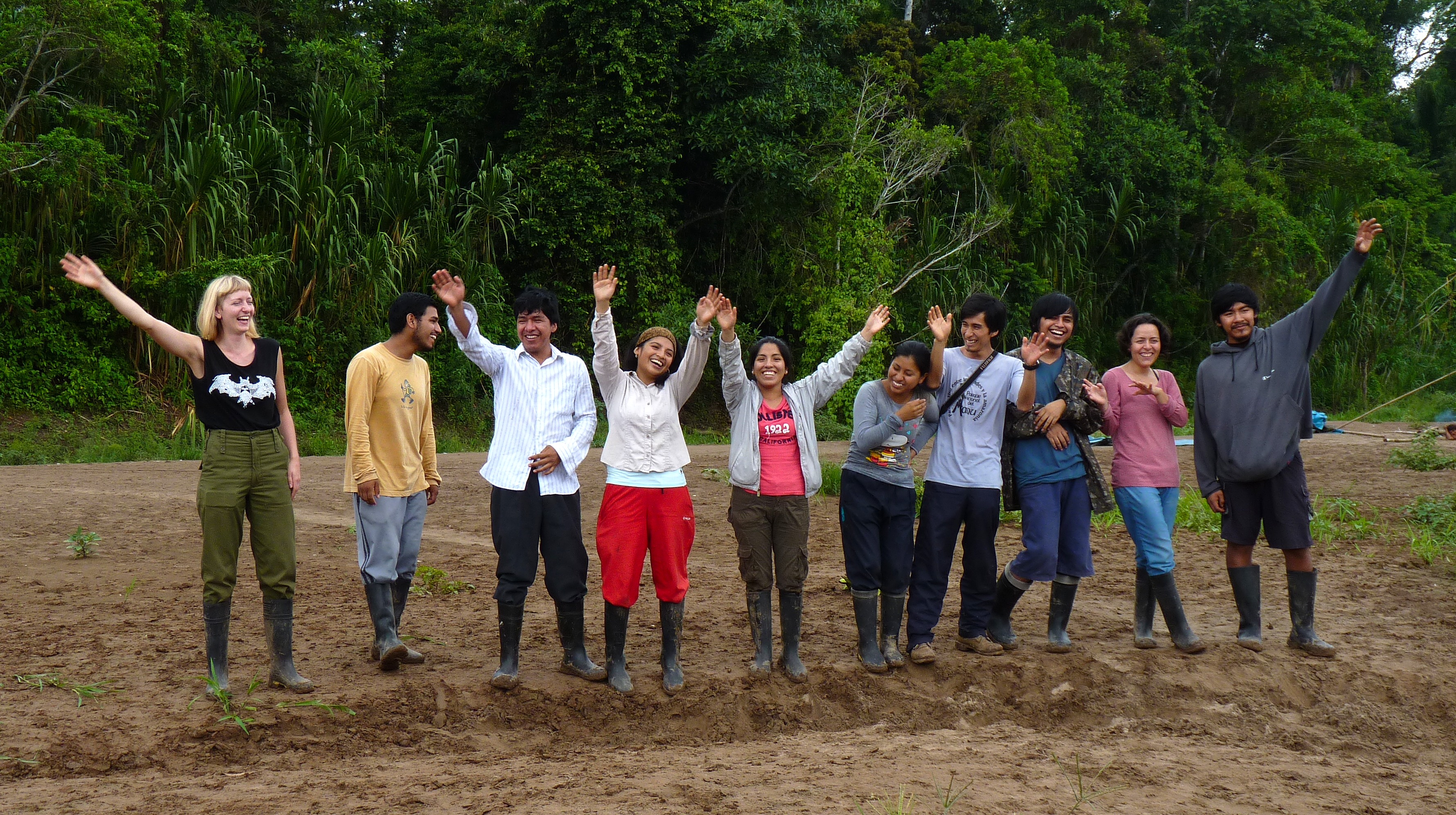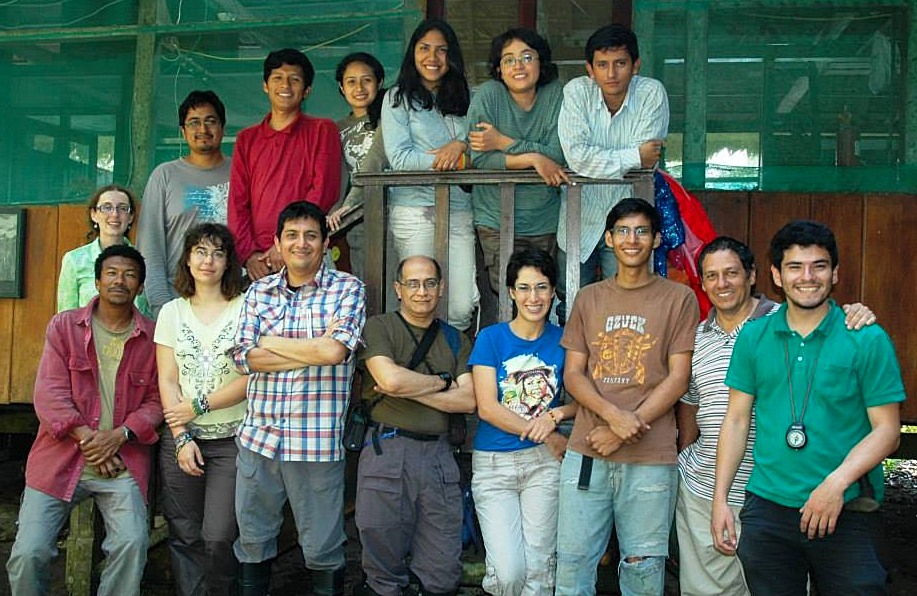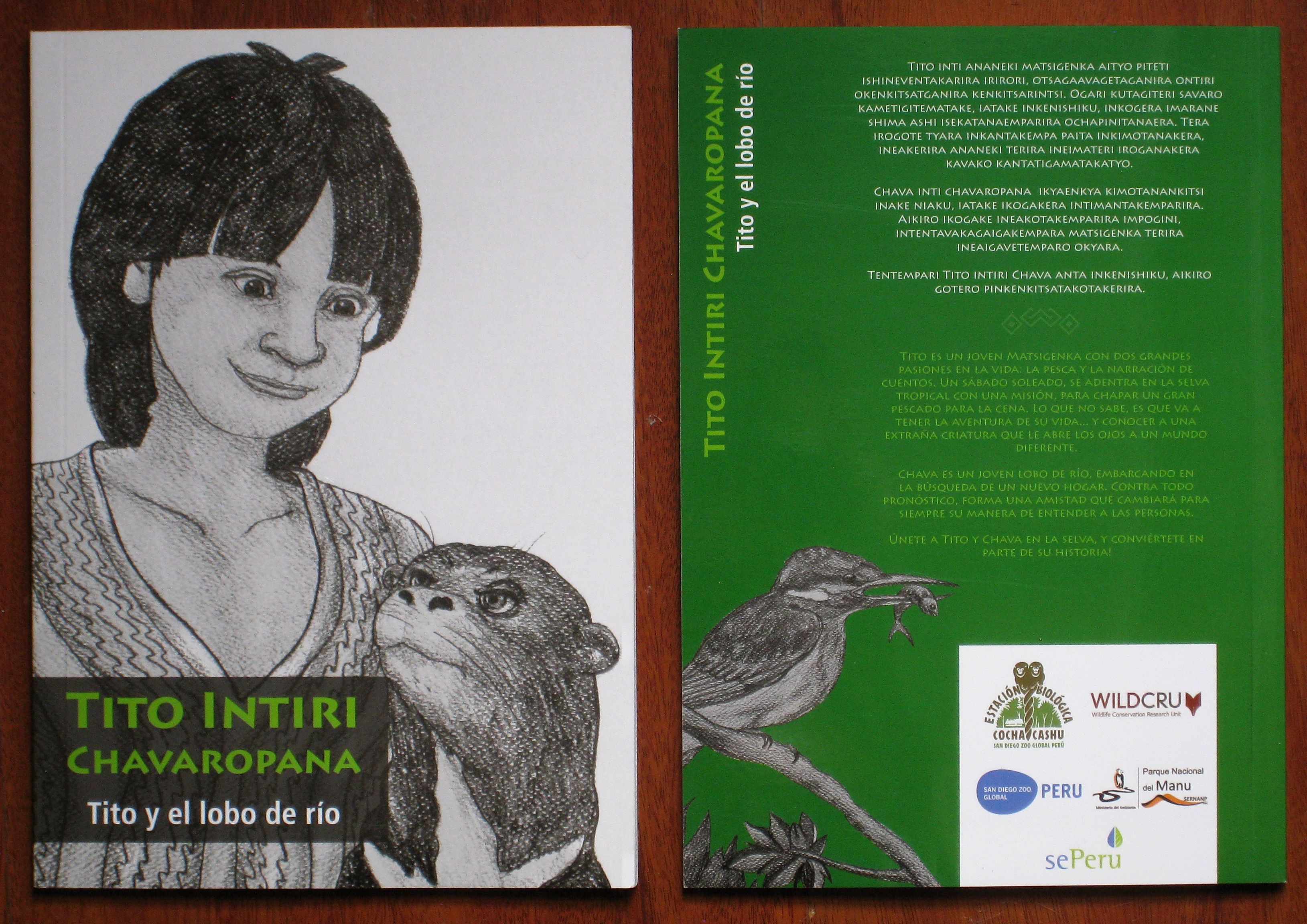Coordinador(a) de Comunicaciones y Divulgación (Semi Senior)
CONVOCATORIA
Coordinador(a) de Comunicaciones y Divulgación (Semi Senior)
JOIN US
Station Manager
Cocha Cashu Biological Station, Manu National Park
INVESTIGANDO EL EFECTO DE LA CONTAMINACIÓN POR MERCURIO EN AVES
Por: Tali Magory Cohen
A fines de junio de este año, cuando el clima era perfecto, regresamos una vez más a una de las estaciones biológicas más hermosas y de apoyo en la naturaleza: la Estación Biológica Cocha Cashu.
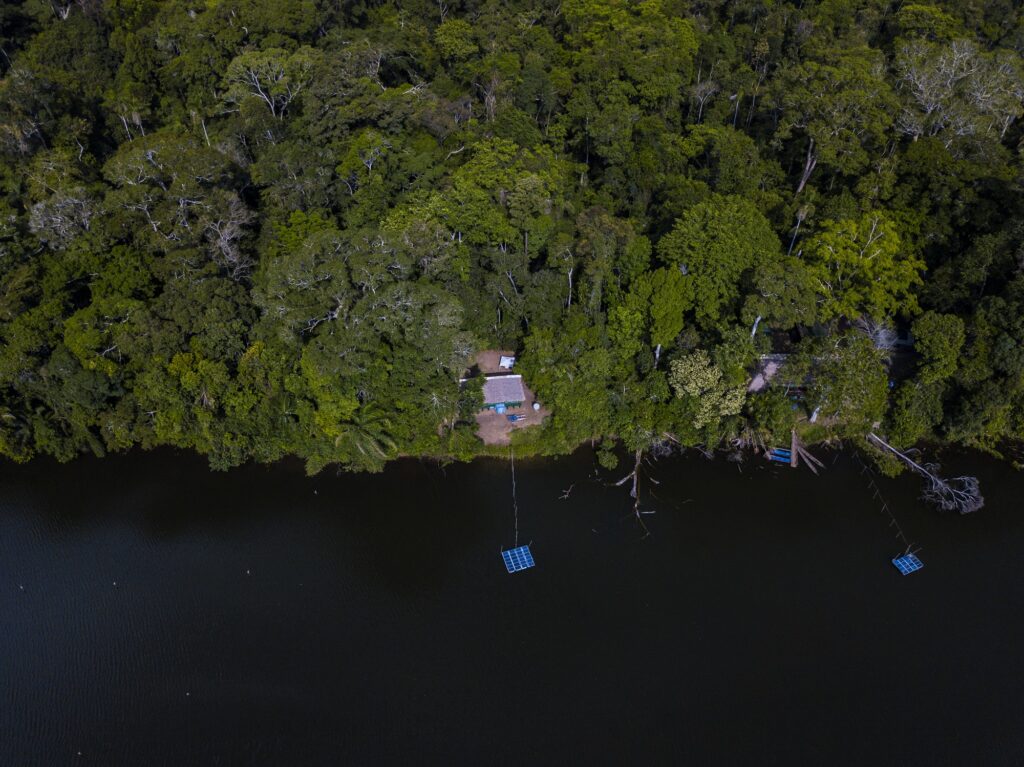
Esta vez, nuestro equipo el de ‘aves’, está conformado por el biólogo Víctor Sánchez Cabrera (asistente de investigación) y la bióloga Cris Siguas Gonzáles (voluntaria). Como siempre, compartimos el viaje con el equipo ‘lobos de rio’ liderado por el Dr. Adi Barocas del San Diego Zoo Global- Perú. Ambos equipos partimos hacia la región de Madre de Dios en el sureste de Perú, para estudiar el efecto de los cambios antropogénicos en el medio ambiente natural.
En nuestro caso, las investigaciones se centran en estudiar el efecto de la contaminación por mercurio en las aves.
Como se sabe, algunas aves, generalmente las especies que están en lo más alto de la cascada trófica, pueden actuar como bioindicadores en un ecosistema, lo que significa que monitorearlas proporcionaría información sobre el estado de todo el ecosistema con un alto grado de certeza. En nuestro sistema de estudio, investigamos varias especies de aves que se alimentan principalmente de peces (piscívoras) y de insectos (insectívoras) en los lagos a lo largo del río Manu.
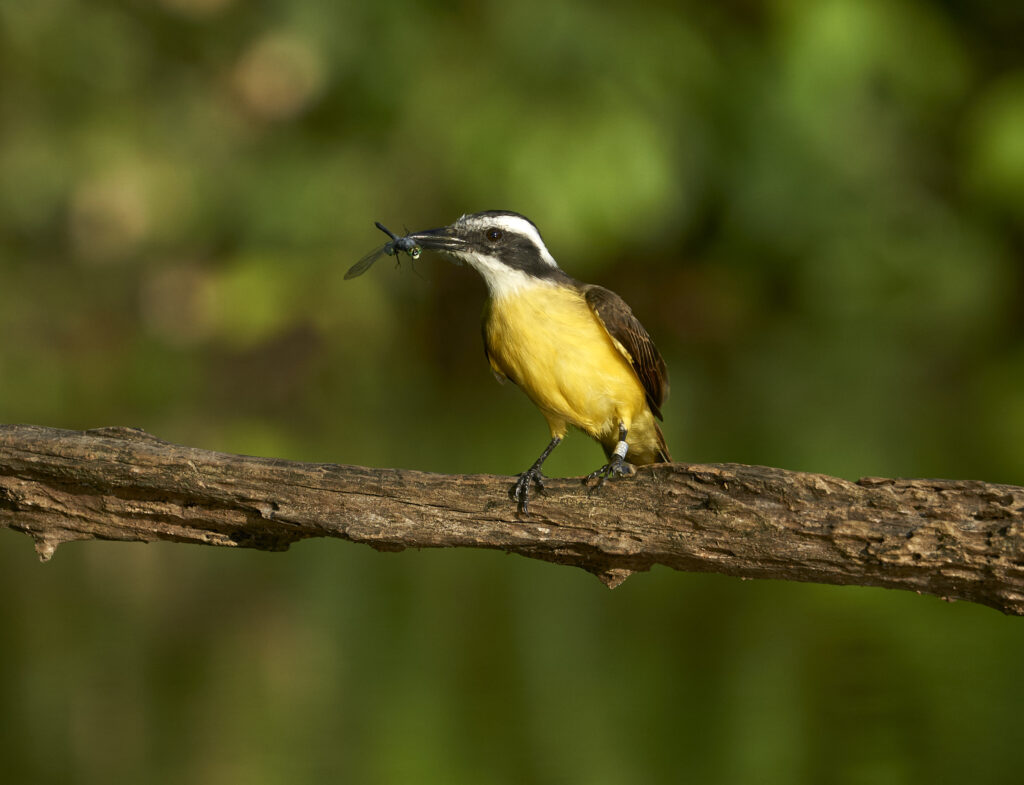
Algunos de los lagos que estudiamos están ubicados en el interior del Parque Nacional Manu, protegidos por las autoridades peruanas de actividades antropogénicas como la caza, la pesca y la minería artesanal de oro; Sin embargo, fuera del área protegida, en la parte baja del río Manu, la extracción de oro artesanal se lleva a cabo desde hace varias décadas, aumentando su ritmo.
Durante la extracción de oro del suelo, los trabajadores a menudo agregan al agua, mercurio, un metal altamente tóxico, para amalgamar el oro y poder recolectarlo. Luego, el mercurio se acumula en el ecosistema acuático y daña a todos los seres vivos en él, desde el plancton microscópico hasta los principales depredadores que se alimentan de peces, incluidos los humanos. La geografía única de nuestro sistema de estudio, que incluye lagos protegidos y lagos contaminados ubicados cerca, nos permite comparar el efecto de la contaminación por mercurio en importantes aves bioindicadores que están presentes en ambas áreas.
Pero ¿Cómo estudiamos el efecto del mercurio en las aves? Para estimar el impacto de la contaminación por mercurio en las aves, buscamos la correlación entre los niveles de mercurio y ciertos rasgos que se expresan en las aves. Medimos el mercurio tanto en el medio ambiente como en los tejidos de las aves, lo que nos permite medir la conexión entre la presencia de este contaminante en el medio ambiente y las propias aves. También medimos rasgos específicos en las aves usando muestras de sangre que extraemos, las que nos indican qué tan saludable está el ave individualmente. Esperamos encontrar que los niveles altos de mercurio se correlacionarán con aves más enfermas. Estas muestras de sangre también nos permiten estudiar el genoma de las aves y buscar los mecanismos genómicos que subyacen en la respuesta de estos animales a la exposición prolongada a niveles elevados de mercurio.
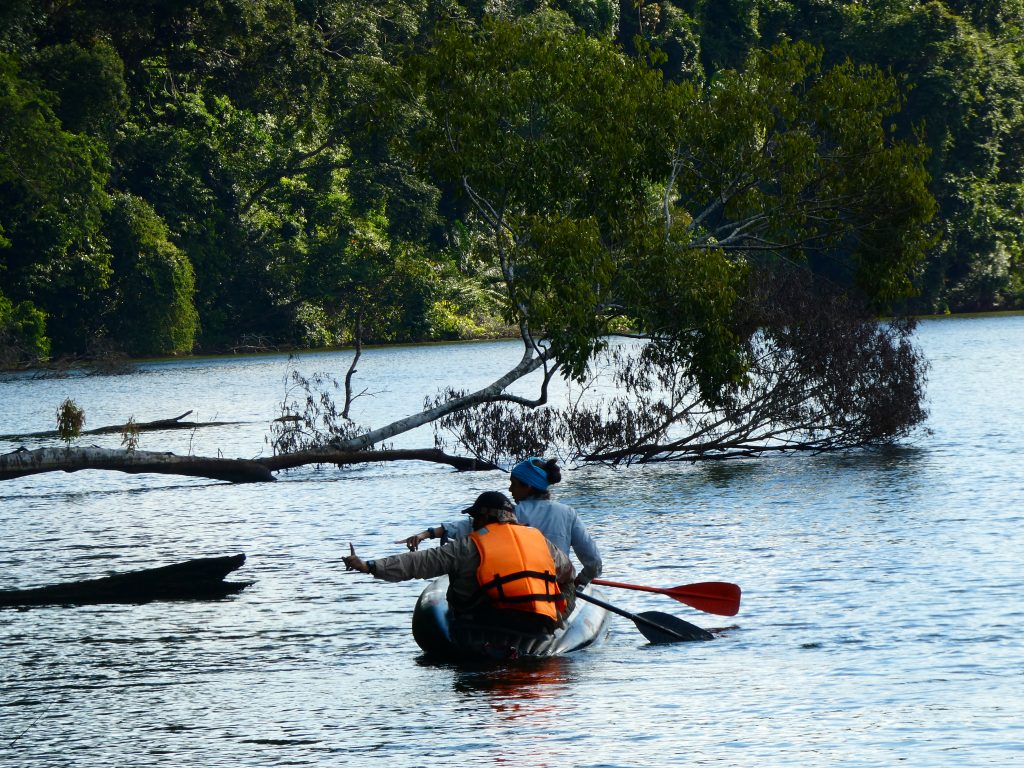
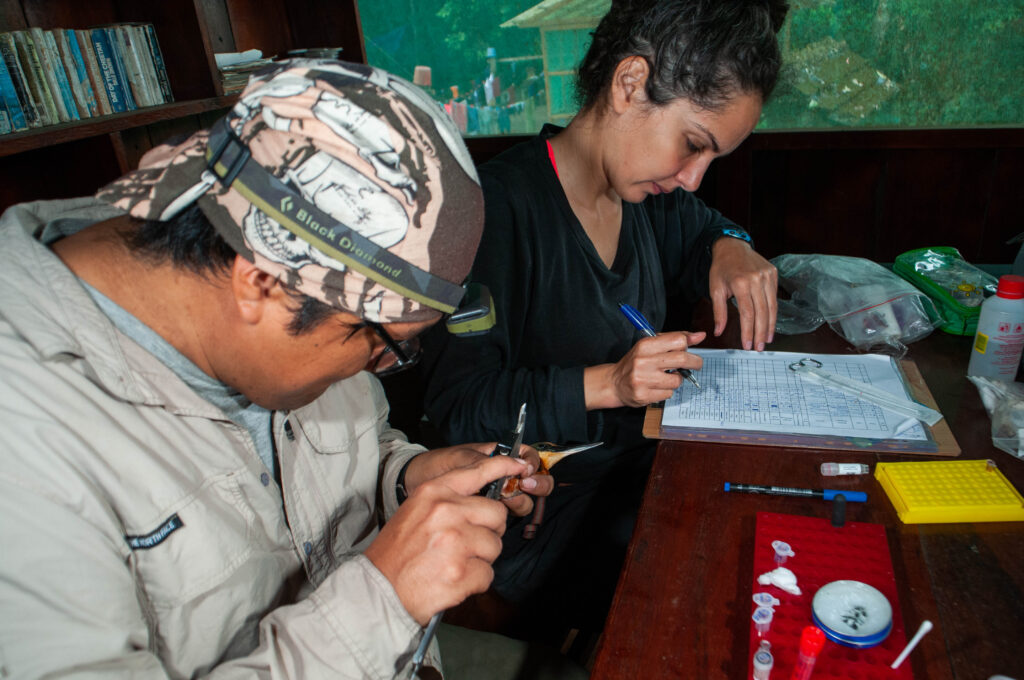
Call for Volunteer Co-Instructor for Cocha Cashu Field Course
Volunteer Co-instructor needed for a Field Course in Tropical Ecology in Peru!
Are you passionate and knowledgeable about tropical ecology? Interested in a 3-month all expenses paid journey to the heart of the Peruvian Amazon? Would you love working
with a small cadre of talented and motivated young Peruvian biologists? If so, then we are
looking for you!
Volunteer to be a co-instructor for San Diego Zoo Global Peru’s 4th Annual Course in Field
Techniques and Tropical Ecology. A $5000 US stipend will be awarded to cover expenses.
Application Deadline: June 30th, 2016
Where: Cocha Cashu Biological Station, Manu National Park, Madre de Dios, Peru.
When: Sept 1st – November 30th, 2016
To apply: Email your application to cochacashu@sandiegozoo.org and roxana.arauco@gmail.com. Applications should include:
1. A full CV
2. A one-page Statement of Interest detailing why you would like this opportunity, what talents and skills you bring, and how this will facilitate your career.
The CCBS 4th Annual Course of Field Techniques in Tropical Ecology 2016
For the past 3 years we have held this course at the Cocha Cashu Biological Station, recruiting and training some of Peru’s most promising students, changing their lives, and sending them off on a different career and life trajectory better prepared to address emerging conservation problems. SDZG, with the support of grants and donors, supports this course as an investment in the future of a healthy Amazon. All expenses are covered for student participants, ensuring that wealth is not a limiting factor for gaining access to this experience. Join us in working toward this shared goal of training the next generation of tropical ecology and conservation professionals in Peru.
Requirements for the Applicant:
•Master’s or PhD degree (enrolled in PhD, ABD acceptable)
• Significant experience conducting ecological research in tropical forests. Mastery of fundamentals of scientific hypothesis-testing, methodology and statistical approaches.
• Teaching experience highly preferred.
• Experience working in Latin America and Spanish fluency preferred.
• Excellent communication and inter-personal skills and experience living under rigorous field conditions.
As the co-instructor of the course, you will travel to one of the most remote places on Earth, several days’ journey from civilization (and medical care). You will live in the Amazonian rainforest, sleep in a tent, and enjoy the company of some of the top ecologists. You will develop and present in-field lectures on agreed-upon topics related to tropical ecology and scientific methodology. You will mentor and assist students, who will be asked to formulate scientific hypotheses, design experiments, collect data and analyze them, and interpret the results in a written report. You will never forget this experience and you will never be the same person again!
Please click Co-instructor announcement 2016 for more details.
Photo: Julie Day, Co-Instructor in 2015 (on the left), with the group of Peruvian students on the beach at Cocha Cashu.
Two graduate student research awards, worth US $7500 each, for study at the Cocha Cashu Biological Station!
What is the opportunity?
We’re looking to promote the next generation of conservation scientists and tropical ecologists and you could be the key to our future. And we want to help. San Diego Zoo Global (SDZG) and the Cocha Cashu Biological Station (CCBS) announce a competition for bright, motivated graduate students to come to our field station to conduct research, all expenses paid.
Are you currently enrolled in a graduate program (doctoral students preferred) and interested in figuring out how Amazonian ecosystems work and how they can be conserved? Then you are a viable candidate. All research topics will be considered, but preference will be given to those most closely aligned with our vision for the Station (learn about us at https://cochacashu.sandiegozooglobal.org/). We are especially interested in research projects that will help address some of the big problems facing conservation in Manu National Park and Amazonian ecosystems generally, or capitalize on unique opportunities at the Station to move forward the field of tropical ecology. Examples of research topics we seek to promote include (1) those addressing climate change, (2) target species identified in Manu National Park monitoring plans, (4) species that have a disproportionate impact on ecosystem maintenance (e.g., “keystone” species), and (5) any research question that has real value for conservation. However, any research question that meets our general goals will be given equal consideration.
What is Cocha Cashu? The Cocha Cashu Biological Station (CCBS) is a tropical ecology field station of international renown and importance for understanding and preserving biodiversity. It is located within Manu National Park in southeastern Peru. As a biodiversity repository, the Manu Biosphere Reserve stands without peer, encompassing the entire Manu River watershed from the Andes Mountains to the lowland Amazonian rainforest—almost 6,000 square miles. SDZG has managed the Station since 2011.
What expenses are covered?
- Full international airfare round trip to Cuzco, Peru
- Vehicular and boat transportation, accommodation and food in transit to Station
- Food and accommodation costs in Cuzco for planning with Cuzco-based staff and making purchases and other logistical arrangements for research
- Station fees and meals at station for 3 months
- Research mentorship by our scientists
- Field assistance provided by Station staff, local indigenous people or Peruvian students and young scientists
- Limited basic field supplies
- Total value = U.S. $7,500 each (two grants are available)
- Other research expenses, including most equipment, must be covered by the applicant.
The funding for this graduate student program comes from a generous donation from the Wallace Research Foundation.
When
Research at the Station must commence before July 2016. Projects commencing before December 2015 will be given preferential consideration.
What are you expected to do?
You will travel to one of the most remote places on Earth, several days’ journey from civilization (and medical care). You will live in the Amazonian rainforest, sleep in a tent, and enjoy the company of some of the top tropical ecologists from the past, present and future. You will conduct research for three months on your proposed research topic. You will write blogs or engage in other forms of outreach and education to media and local audiences. You will provide a brief report summarizing your research findings and their relevance to conservation. You will never forget this experience and you will never be the same person again (we hope).
Why are we doing this?
Field ecology, especially in the tropics, is declining in academia due to the high costs and long-term nature of field ecology and changing emphases. Boots-on-the-ground ecology is at risk, which will have important ramifications for future generations of ecologists. A new generation of trained biologists is urgently needed to study ecological processes in nature and apply lessons learned to conservation action. If today’s graduate students do not gain this important experience, where will the next generation of conservation professionals and ecologists come from? Our intent is to address this problem and, hopefully, to catalyze new, innovative research programs at Cashu well into the future.
Requirements for applicants:
- Enrolled in a graduate program (Ph.D. preferred)
- Significant experience conducting ecological research
- Mastery of fundamentals of scientific hypothesis-testing and methodology
- Good communication and inter-personal skills
- Spanish fluency preferred
- Excellent health and experience living under rigorous field conditions
- A strong research proposal
Before you apply: please visit our website (https://cochacashu.sandiegozooglobal.org/) and read the materials there to make sure that you and Cocha Cashu are a good fit. It is a magical place but it is not for everyone.
To apply: Send an email to Cochacashu@sandiegozoo.org. Send a full CV, a research proposal, and a 1-page Statement of Interest detailing why you would like this award, what talents and skills you bring, and how this experience will facilitate your career. The research proposal should be no more than 4 pages, should (1) introduce the reader to the background to your research, (2) state the hypotheses being tested, (3) summarize the methods utilized, (4) discuss the question’s relevance to conservation and the goals of CCBS, and (5) state the expected outcomes. Proposals will be evaluated with regard to conservation relevance, scientific soundness, innovation, clarity of presentation, and in terms of how well the proposed research will move forward the goals of the Station.
Review of applications will commence on June 30, 2015 and applications submitted before this deadline will be given preferential consideration. However, strong applications received after that date will also be considered until September 1, 2015.
Co-instructor for field ecology course at Cocha Cashu Biological Station Wanted
What: Co-Instructor for the Third Annual Course in Field Techniques and Tropical Ecology
Where: Cocha Cashu Biological Station, Manu National Park, Peru
When: September 1 (arrive a few days earlier)- November 30, 2015
How much: $0, but all travel and living expenses are paid ($5,000 value)
Interested in an all-expense paid 3-month journey to the heart of the Peruvian Amazon? Are you passionate and knowledgeable about tropical field ecology and conservation? Would you enjoy working with a small cadre of motivated Peruvian college students, teaching them the fundamentals of tropical ecological research and conservation? Then we might be looking for you.
We are looking for a highly motivated, capable individual to volunteer as a co-instructor for San Diego Zoo Global-Peru’s annual course in Field Techniques and Tropical Ecology. The following expenses will be covered: air, vehicular, and boat transportation; Station fees; food.
What is Cocha Cashu? The Cocha Cashu Biological Station (CCBS) is a tropical ecology field station of international renown and importance for understanding and preserving biodiversity. It is located within Manu National Park in southeastern Peru. As a biodiversity repository, the Manu Biosphere Reserve stands without peer, encompassing the entire Manu River watershed from the Andes Mountains to the lowland Amazonian rainforest—almost 6,000 square miles. SDZG has managed the Station since 2011.
What am I expected to do? You will travel to one of the most remote places on Earth, several days’ journey from civilization (and medical care). You will live in the Amazonian rainforest, sleep in a tent, and enjoy the company of some of the top tropical ecologists from the past, present and future. You will develop and present in-field lectures on agreed-upon topics related to tropical ecology and scientific methodology. You will mentor students, who will select and implement independent research projects. You will assist them with devising research hypotheses, experimental design, data collection methods, statistical analysis, and interpretation and write-up. You will never forget this experience and you will never be the same person again (we hope).
Requirements for applicants:
- Master’s or PhD degree (enrolled in PhD, ABD acceptable)
- Significant experience conducting ecological research in tropical forests
- Mastery of fundamentals of scientific hypothesis-testing and methodology
- Experience working in Latin America
- Excellent communication and inter-personal skills
- Spanish fluency strongly preferred
- Experience teaching highly preferred
- Excellent health and experience living under rigorous field conditions
Before you apply: please visit our website (https://cochacashu.sandiegozooglobal.org/) and read the materials there to make sure that you and Cocha Cashu are a good fit. It is a magical place but it is not for everyone.
To apply: Email Cesar Flores (Director CCBS) cfloresn@sandiegozoo.org and Ron Swaisgood (Director, Applied Animal Ecology, San Diego Institute for Conservation Research) rswaisgood@sandiegozoo.org. Send a full CV and a 1-page Statement of Interest detailing why you would like this position, what talents and skills you bring, and how this experience will facilitate your career.
III Field Techniques and Tropical Ecology Course at the Cocha Cashu Biological Station
The call for the III Course on Field Techniques and Tropical Ecology at the Cocha Cashu Biological Station is now open. This course is aimed at promoting the most talented students from Peruvian universities in courses in biology and related management and conservation of natural resources. There are ten vacancies for this year’s course, which will be held between August 31 and December 4. The deadline to submit your application is Monday, June 15, 2015.
As in previous years, successful candidates will only be required to cover their transport to the city of Cusco and a two-night stay. Transport, accommodation and meals between Cusco and the Station will be covered by the organizers thanks to the generous support of the Wallace Research Foundation and the Research Fund of the Condon family.
For more information you can download the 1ra Circular Curso Cocha Cashu 2015_esp or contact us at the following email: cochacashu@sandiegozoo.org
Conservation education bilingual booklet for Manu National Park’s Matsigenka communities
We received funding last year from the UK-based Iris Darnton Foundation, through the Wildlife Conservation Research Unit (University of Oxford), for the creation of a bilingual conservation education booklet, in Matsigenka and Spanish, for the Matsigenka communities in and around Manu. It is aimed at children but we hope it will appeal to all ages. The main protagonists are a Matsigenka boy acting as the voice of his community and a giant otter as flagship species of the aquatic environment in particular, and of Manu National Park as a whole. The story explores the worlds and perspectives of each, as well as key conservation issues, in a non-judgmental language and in an entertaining, highly visual way. The booklet is co-authored by Gregorio Perez (Matsigenka community leader) and Glenn Shepard and illustrated by a Cusco artist, Miguel Angel Achahuanco. It incorporates several Matsigenka fables contributed by Gregorio. 2000 copies of the booklet have been printed and will be distributed among Matsigenka families in the Manu region early 2015. You can download a PDF version of the book here: Tito intiri Chavaropana.compressed (6.82 MB).
Course on Field Techniques and Tropical Ecology at the Cocha Cashu Biological Station 2014
05 December
This year’s ten Peruvian students have just successfully completed the three-month course at the Station and recently presented the results of their individual research projects to the Head of the Park, John Florez, and his team. You can find a list of the projects conducted by the students here: Alumnos Students_TEFT_2014.

